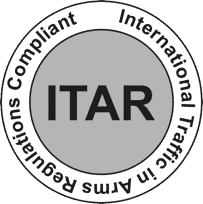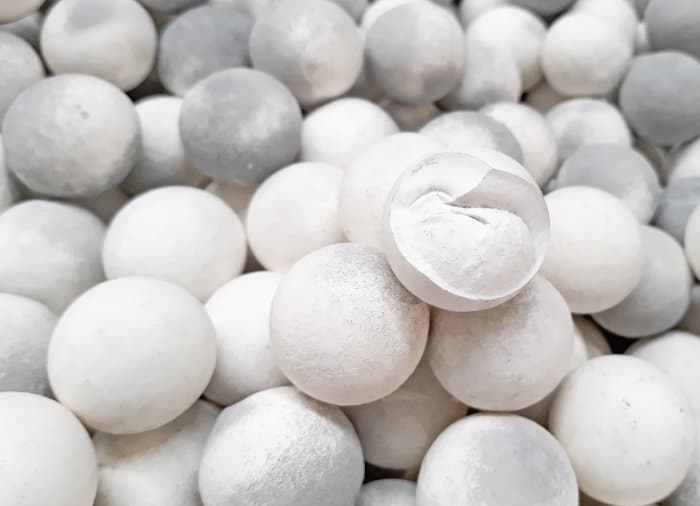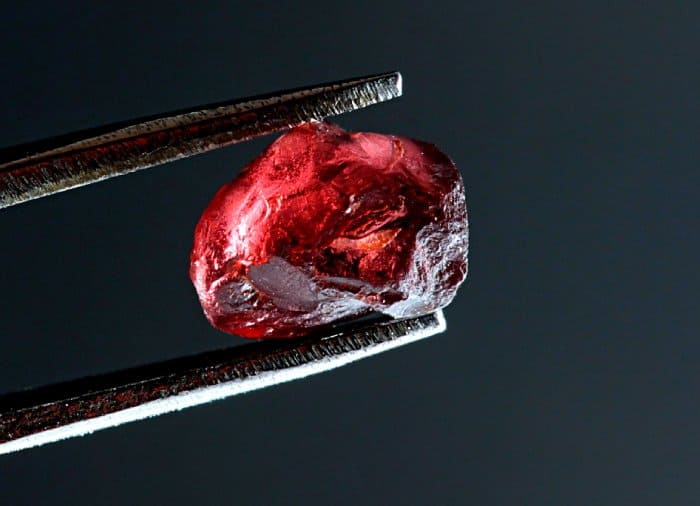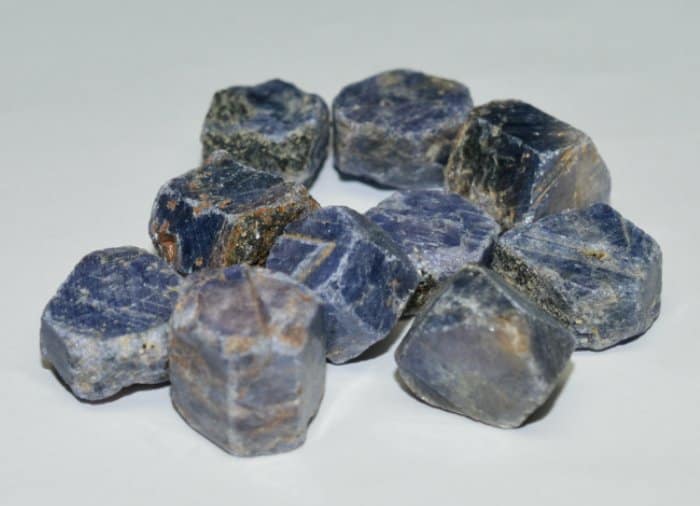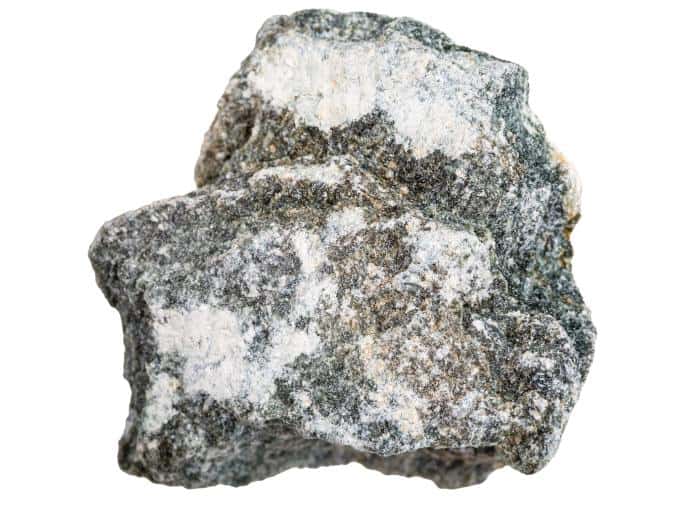Materials
Trust Your Precision Grinding to the Experts
Quartzite Processing, Inc. is an industry leader in precision ceramic grinding. We have the knowledge and expertise to provide machining for 9 types of materials, including:
- Quartz
- Ferrite
- Alumina (Aluminum Oxide)
- Silicon Carbide
- Glass
- Microwave Absorbers (Polyiron)
- Microwave Dielectrics
- Steatite (Soapstone)
- Silicon Nitride
Materials
The expert knowledge and understanding of various materials enable our team to provide top-quality parts to our customers. We employ several grinding methods to achieve the best results with each material. Our capabilities include:
Quartz Machining
Quartz is among the world’s most widely recognized minerals. This material is ideal for abrasives because of its high hardness level, scoring seven on the Mohs Scale. Sand blasting, grinding, scouring cleansers, sawing and sanding grit, and other applications often rely on quartz.
Quartz’s resistance to heat and chemicals also makes it a popular option for foundry sand. Additionally, the petroleum industry frequently uses quartz sand for sand slurries in hydraulic fracturing applications.
Ferrite Machining
Ferrite is a type of magnetized ceramic that consists of a combination of iron oxide, i.e. rust, and a metal such as manganese, zinc, nickel, or barium. Fabrication of ferrite entails mixing a large quantity of rust with a smaller quantity of a specific metallic element.
Some of the potential applications for ferrite include:
- Thermal sensing switches in air conditioners, refrigerators, electric ovens, and other appliances
- Ferrite rods for ultrasonic wave production
- Electric motors that rely on ferrite for insulation
- Flat rings in correction magnets, loud speakers, and wind screen wiper motors
Alumina (Aluminum Oxide) Machining
Also known as aluminum oxide, alumina is in the technical ceramic oxide group and functions as an advanced refractory. It’s possible to form a variety of shapes using this material via sintering and consolidation techniques. Alumina’s purity varies depending on the intended application, with high-purity alumina featuring resistance to corrosion and wear, along with high strength.
Many applications use alumina, including tap washers, spark plugs, cutting tools, and abrasion-resistant tiles. In addition, brick and monolithic refractories tend to use alumina in large tonnages.
Silicon Carbide Machining
Silicon carbide is a crystalline compound consisting of carbon and silicon that combine to produce a hard material used in many applications. Grinding wheels, sandpapers, and cutting tools often contain silicon carbide. Components in light-emitting diodes, rocket engines, and industrial furnaces also use this material.
Glass Machining
This solid and transparent material appears in many everyday applications. It consists of limestone, sand, and other raw materials that manufacturers melt to form glass. The ability to liquify this material at high temperatures enables manufacturers to form many shapes with it.
Some applications for glass materials include flexible and rigid panels in electronics that help protect them in various environments.
Microwave Absorber Machining
Microwave absorbing materials, including polyiron, are magnetically loaded epoxy solutions consisting of plastic material combined with metal. They are highly machinable, making microwave absorbers popular in many applications. Terminations, electronic components, attenuators, waveguides, antenna support systems, and magnetic wave guide absorbers often use polyiron.
Dielectric Materials
Dielectric materials are non-metallic and non-conductive materials used to store electrical charges.
Applications for dielectric materials include:
- Capacitors for storing energy
- Cooling agents and insulators in transformers
- Performance enhancement for semiconductor devices
- Electrets, which are an electrostatic alternative to traditional magnets
Steatite (Soapstone) Machining
Steatite, also known as soapstone, is a type of metamorphic rock that consists of talc and other minerals. Applications for steatite include materials for sinks, flooring, countertops, masonry heaters, and other types of architectural applications.
Silicon Nitride Machining
Silicon nitride is a type of non-oxide structural ceramic that’s typically dark grey or black in color. It features superior thermal and shock resistance. Some applications for silicon nitride include industrial wear situations, metal forming, and molten metal handling.
Other Hard Materials
If you have a hard material that needs diamond tooling grinding that isn’t listed above, please reach out to us and we can see what we can do.
Using the Right Grinding Wheel & Bonds for Different Materials
Tool selection is a critical factor when working with different materials. Abrasive grains help remove materials from workpieces, with different types of grains allowing for various levels of material removal. At Quartzite Processing, Inc., we use diamond tooling and a selection of different grinding wheels. We also use grit to provide optimal precision for our customers, including fine and coarse grit.
Depending on the application, we use either resin or metal bonds to attach diamond grains to wheels. Metal bonds attach abrasive and hard materials, such as silicon carbide. Metal bonds don’t have any “give” compared to resin bonds. Meanwhile, resin bonds are gentler and softer, making them ideal for working with materials such as ferrites and gemstones due to the delicate nature of those materials. Because resin is a plastic that holds the diamond grains, it has more “give” than metal bonds.
Experts in Precision Machining
Our capabilities enable us to provide our customers with the precision-machined parts they need for a wide range of applications.
We stock many materials to facilitate exceptionally fast turnaround times, with ITAR certification and ISO 9001:2015 compliance backing our services. We’re a family-owned and operated business with three generations of expertise and quality behind us. Additionally, we manufacture top-quality custom prototypes while maintaining affordability and efficiency. Our specialties include “Ship-to-Stock” and “Just-in-Time” delivery.
To get started on your next project with us, request a quote for our services. For additional information about our services and capabilities, contact us today.

